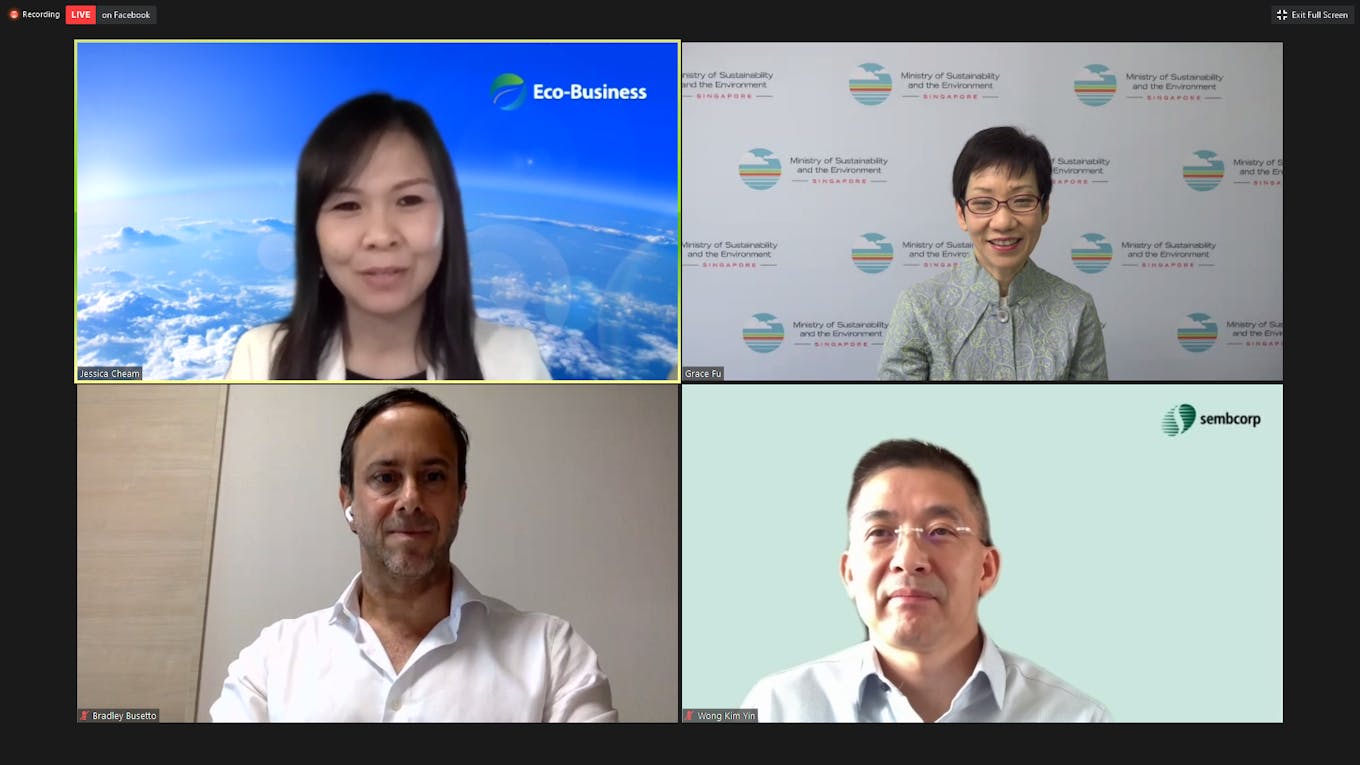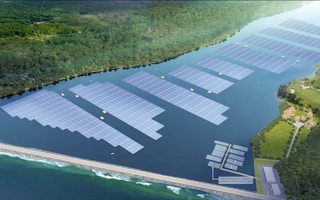As job losses mount amid a global economic slump caused by the Covid-19 pandemic, Singapore’s Minister for Sustainability and the Environment Grace Fu said opportunities will emerge in the field of sustainability.
“[Sustainability] is a new sector where jobs are going to grow—and good jobs as well,” Fu said on Tuesday (18 August) at a virtual dialogue by Eco-Business and Sembcorp Industries titled Emerging stronger from a crisis.
Climate scientists, engineers, technicians and food scientists will be needed as Singapore increases its capabilities in climate action, mitigation and adaptation over the next decade, she said at the dialogue, held in conjunction with Singapore’s annual Climate Action Week.
Jobs in sustainability that emerge will depend on each country’s context, said Bradley Busetto, director of United Nations Development Programme’s (UNDP) Global Centre on Technology, Innovation and Sustainable Development.
For Singapore, UNDP and Fu’s ministry have collaborated to promote innovation in sustainable agriculture and the future of food, said Busetto.
The coronavirus pandemic is the largest peacetime crisis that humanity has witnessed in generations, and the Singapore economy is expected to shrink 5 to 7 per cent this year. The road to recovery must include climate action, said speakers at the dialogue, which drew participants from the government, industry and non-profit sectors.
Besides questions on job prospects in the field of sustainability, attendees also asked if the pandemic has sped up or hampered sustainable development in Singapore, and how it has changed business and policy perspectives.

Moderated by Eco-Business managing director Jessica Cheam (top-left), the event’s speakers were Singapore’s environment minister Grace Fu, Sembcorp Industries group president and CEO Wong Kim Yin, and UNDP Global Centre on Technology, Innovation and Sustainable Development director Bradley Busetto.
Busetto said governments must establish clear and actionable green recovery plans that include fiscal stimulus mechanisms to support and incentivise green business practices.
Even as the authorities in Singapore tackle Covid-19, they are aware of the “urgent need to press on” in the battle against climate change, which would threaten the very existence of the country, said Fu.
“People always say if you have economic competitiveness, you can’t have environmental considerations. I’d like to challenge that, I think it’s less of a trade-off. It makes more sense now for us to [consider both objectives together].”
Singapore’s government is thinking of ways to incorporate sustainability into “important” decisions such as the awarding of tenders and procurements, she added.
Sustainability makes business sense
The long-term global trend towards sustainability is clear, and the current crisis underlines the importance and urgency of climate action, said Sembcorp Industries group president and chief executive Wong Kim Yin.
From a business perspective, the pandemic has exposed gaps in current systems and has given corporations the impetus to invest for the future, he said.
Sembcorp, a multi-national energy, marine and urban development company, has a thermal and renewable energy portfolio of over 12,600 megawatts (MW). With a renewables, battery storage and energy-from-waste capacity of over 2,800 MW, it recently began construction of Singapore’s largest single inland floating solar photovoltaic (PV) system at Tengeh Reservoir with national water agency PUB. When completed in 2021, the system will generate enough solar power to offset 7 per cent of PUB’s annual energy needs.
Wong also spoke of the greater need to equip Sembcorp’s employees with the digital skills. The company has conducted almost 100,000 internal Zoom meetings since March this year, and he said: “We need to train our people and equip them with resources so that that they’re able to engage in a Covid-world.”
Sustainability makes business sense, and price signals and economic incentives are catching on and gaining momentum in Asia, Wong said. “In 2014, Singapore had 33 MW of solar panels, but today we have over 300 MW. What’s spurring adoption is that cost structures are coming down.”
But even as green technology becomes commercially attractive, it is important to take a holistic approach that considers other social goals such as access to electricity, Wong noted.
“In a place where there’s no viable alternatives, if you deprive someone of electricity use just because it comes from coal power plants, which is worse? Just taking a single-dimensional way of thinking about sustainability is against the overall sustainability outcome,” he said.
The Singapore government is conducting empirical studies to identify gaps and opportunities in policy, said Fu.
Citing the adoption of energy-efficient appliances, she said it is usually property developers who decide which air-conditioners to install, but the benefit of lower electricity bills is enjoyed by tenants or residents.
“Very often this decision is not taken because the benefits do not accrue to the person that’s bearing the cost,” said Fu. “As policymakers, we have to look at opportunities like these that make sense. We want to make decisions that capture the externalities with good numbers.”





















